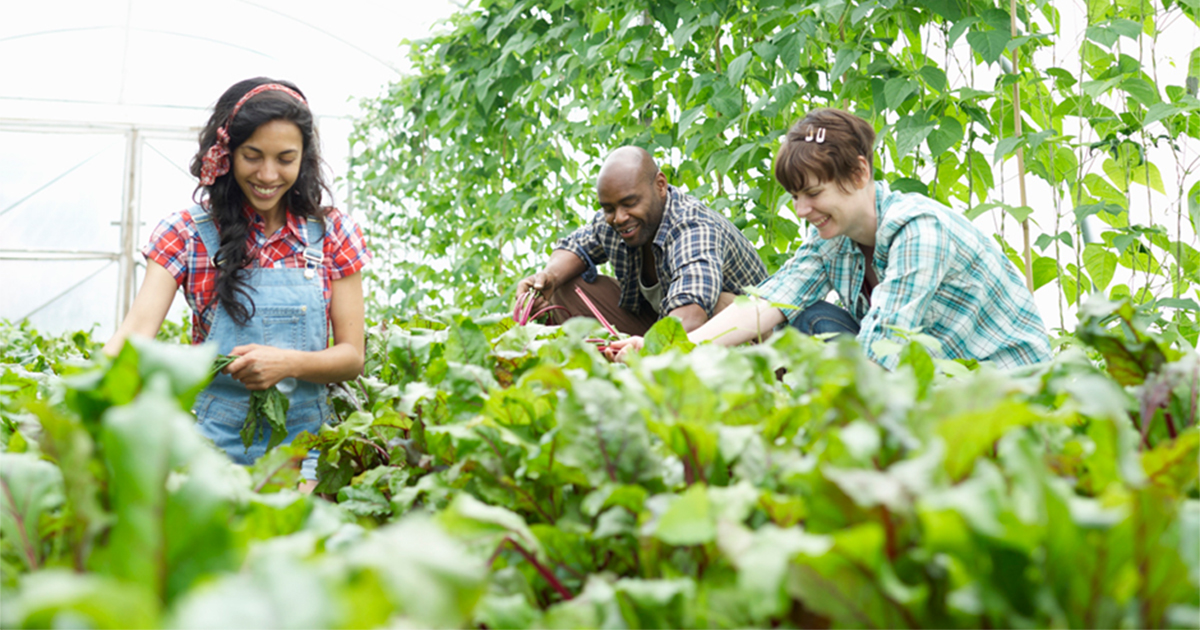Slow Money Investing Takes Root

“We’re running out of dirt.”
In this short phrase, Woody Tasch, venture capitalist, serial entrepreneur, and author, describes the environmental degradation caused by current farming methods. Many stories are familiar: fertilizer runoff contaminating waterways and wetlands; pesticides killing birds and insects; and the recent collapse of entire bee populations. Tasch’s “quiet crisis of the world economy,” though, involves the loss of arable soil.
On its own, nature needs about 1,000 years to build up an inch of topsoil, the vitamin-rich and biologically diverse medium in which healthy plants grow. High-intensity farming methods deplete that same inch in about 40 years. More than one-third of topsoil in the United States has washed into rivers, blown away, or been paved over since Europeans began farming in North America. Even more disturbing, more than one-third of all arable farmland in the world has been degraded or lost since World War II.
An emerging cadre of enterprising investors and entrepreneurs is committed to turning this situation around, and making money in the process. Food entrepreneurs are revitalizing dozens of old businesses, and starting hundreds of new ones, based on sustainable farming and food production methods. Worldwide, this new alternative food system is referred to as Slow Food. Tasch and other investors promote a so-called Slow Money model to fund these enterprises, and realize solid returns for their efforts.
Slow Money, says Tasch, offers a new economic model intent on “investing a few billion dollars a year in tens of thousands of small food enterprises that are essential to the long-term stability and health of soil and community.” Slow Money investors—individuals, funds, and associations—steer capital to food entrepreneurs—farmers, bakers, cheese-makers, brewers, and more—who grow and produce food with methods that restore instead of deplete soil. Investors are rewarded financially for lower turnover and longer holding periods, say three, seven, 10 years, and socially (or personally) for participating in building a restorative economy.
Julia Shanks is the regional head of Greater Boston Slow Money. Like many Slow Money groups, it hosts educational forums, supports local food festivals, and brings local food entrepreneurs and investors together. A recent event brought prospective impact investors—people who invest their capital with the express intention of addressing social and environmental challenges—together to learn about creating capital markets to support local social enterprises. “Boston has a lot of people who are interested in investing for social returns as well as economic returns,” notes Shanks. “They can go in it for the long haul, not the quick exit.”
Shanks, who earned an MBA at Babson and has cooked and consulted in the restaurant industry since the 1990s, is a member of a local investment club called Sprout Lenders. “Our club makes loans to small-scale food entrepreneurs and farmers in the Greater Boston area. Initially, 14 of us came together and each contributed $2,500 to an investment pool. We decided we wanted a target return of 2–3 percent to start, enough to keep up with inflation and cover our expenses. To get a 2–3 percent return, we calculated that we need to make 9 percent on our loans, to be both financially legitimate and financially sustainable.”
With three investments in place, and more in the pipeline, Sprout Lenders recently doubled its pool of investors. Two of the loans charged 9 percent interest, so the club made its return goal. The third is a so-called royalty financing deal, a hybrid combining debt and equity. “We receive 1.9 percent of revenue until we get an imputed rate of return of 19 percent over seven years. As the company does better, we make more money, because we have a longer time horizon than a more typical financing option.” A recent Boston Slow Money Entrepreneur Showcase connected Sprout Lenders and other potential investors with new ventures and opportunities.
Investments in local agriculture represent only a small percentage of the $4 trillion socially responsible investing market. Shanks notes that involvement doesn’t present huge risks. “Anyone can start just by putting cash in a local bank, instead of a large multinational bank. Joining a Community Supported Agriculture (CSA) co-op is a great way to invest in farmers, who get cash when they need it—up front, to buy seeds and equipment—in exchange for healthy, locally grown food later in the season.”
And, she notes, investment clubs are relatively are easy to start. Slow Money of Maine’s investment club, No Small Potatoes, offers easy-to-use template documents for starting your own group.
“You can also invest some of your money in a community development fund (CDFI),” offers Shanks. “Or try crowdfunding, like Three Revolutions, which provides capital for food innovators. All of these are great ways to make money while supporting food entrepreneurs and restoring our soils and our communities.”
Posted in Entrepreneurial Leadership
